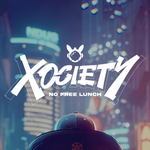Critical evaluation
The research on XOCIETY's tokenomics framework provides valuable insights but exhibits several gaps and limitations that impact its comprehensiveness and reliability. While it covers key aspects such as the dual-token model, earning mechanisms, and blockchain infrastructure, it lacks depth in critical areas like governance, long-term sustainability, and specific technical specifications. This results in a research quality that can be categorized as 'Average', limiting the ability to draw fully comprehensive conclusions about XOCIETY's performance in this area. The incomplete critical evaluations and missing information significantly affect the analysis's ability to assess the game's economic model comprehensively.
-
The research lacks detailed information on the long-term sustainability of the token model.
- There is no clear discussion on how inflation risks are mitigated over time.
- The impact of token emissions on future token value is not thoroughly evaluated.
-
Governance mechanisms and community involvement in tokenomics are insufficiently explored.
- The extent of community influence over future token unlocks and economic decisions remains unclear.
- There is no detailed analysis of how governance tokens ($MCT) are utilized in decision-making processes.
-
Technical aspects of the tokenomics framework, such as smart contract audits and blockchain performance metrics, are not fully addressed.
- No information on smart contract audits or fail-safe mechanisms is provided.
- The specific technical capabilities of the Sui blockchain, such as transaction throughput and security, are not detailed.
-
The research does not adequately cover the environmental impact of the blockchain infrastructure.
- There is no concrete data on Sui's energy consumption or sustainability initiatives.
- The alignment of blockchain environmental policies with XOCIETY's community values is not discussed.
Follow-up questions
How does XOCIETY's token distribution mechanism address the risk of whale dominance and ensure a fair share of tokens among players?
- Without understanding the distribution mechanism, stakeholders cannot evaluate the fairness of the token model or assess the risk of economic inequality within the game. This is critical for ensuring long-term player engagement and economic stability.
What specific mechanisms are in place to prevent inflation and maintain the long-term value of XOCIETY's tokens?
- Inflation control is crucial for the sustainability of the in-game economy. Without clear information on these mechanisms, stakeholders cannot assess the risk of devaluation or the long-term economic viability of the game.
How are governance tokens ($MCT) utilized in decision-making processes, and what is the extent of community involvement in economic decisions?
- Understanding the role of governance tokens is essential for evaluating the decentralization and community-driven nature of the game. Without this information, the fairness and transparency of the economic model cannot be fully assessed.
What are the specific technical capabilities of the Sui blockchain, and how do they support the scalability and security needs of XOCIETY?
- The technical performance of the underlying blockchain is critical for the game's scalability and security. Without detailed technical specifications, stakeholders cannot evaluate the blockchain's ability to handle the game's growth and ensure player trust.
What are Sui's environmental impact and sustainability initiatives, and how do they align with XOCIETY's community values?
- Environmental sustainability is increasingly important in the blockchain industry. Without information on Sui's energy consumption and sustainability measures, stakeholders cannot assess the alignment of XOCIETY's infrastructure with broader environmental and community expectations.



